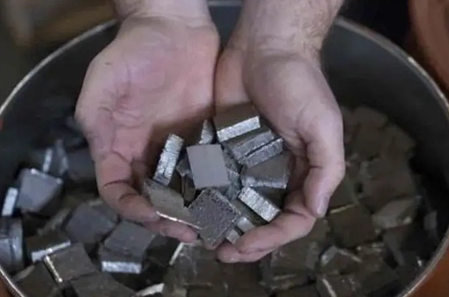
Guwahati, May 1 (IANS) Researchers at the Indian Institute of Technology (IIT) Guwahati have developed a novel, multi-functional aerogel with significant potential to address pressing environmental challenges like wastewater treatment, industrial pollution, and oil-water spills.
Aerogels are ultra-lightweight, highly porous materials with a large surface area and exceptional adsorption properties, making them ideal for a wide range of environmental and industrial applications.
While conventional methods such as membrane filtration and chemical precipitation are widely used, advanced oxidation processes (AOPs) have gained increasing attention for their effectiveness in degrading pollutants.
Particularly, Peroxymonosulfate (PMS)-activated AOPs stand out for generating highly reactive sulfate and hydroxyl radicals, capable of breaking down complex organic molecules even at low concentrations.
The team developed a hybrid aerogel by combining MXene — a two-dimensional material known for its high conductivity and chemical reactivity, with carbon foam.
By introducing phosphorus doping into the MXene framework, the researchers significantly improved its PMS activation capability, enabling the efficient breakdown of persistent organic pollutants in wastewater.
Beyond wastewater treatment, the aerogel also exhibited excellent performance in oil-water separation. Its porous architecture selectively absorbs oil while repelling water, making it highly effective for cleaning up oil spills and treating industrial effluents.
This separation process is not only efficient but also environmentally friendly, said the team.
“This study demonstrates how a single engineered material can offer multiple solutions to environmental challenges. The hybrid aerogel we developed shows promising results in wastewater purification, oil-water separation, and strain sensing, combining environmental sustainability with practical versatility,” said Prof. P. K. Giri, Department of Physics and Centre for Nanotechnology, IIT Guwahati.
In addition, the developed aerogel also functions as a flexible strain sensor. Its electrical resistance changes in response to mechanical stress, opening applications in wearable electronics, smart devices, and structural health monitoring systems.
This multi-capability material represents a significant advancement in sustainable materials science, offering scalable solutions for cleaner water, pollution control, and next-generation sensing technologies.
Although the Ti3C2Tx-based hybrid aerogel demonstrates excellent performance, its conventional HF-based synthesis raises significant environmental and toxicity concerns.
To address this, the research team is exploring acid-free synthesis routes for large-scale applications. In addition, they are working on introducing a co-catalyst layer to enhance the performance and durability of MXene-based aerogels by preventing the direct degradation of MXene nanosheets during catalysis.
–IANS
rvt/




